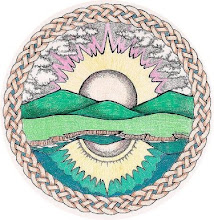Update: 2 new hypotheses added, December, 2011:
1. How are folks walking the walk?
2. How are they not?
It was three years ago, just about this time of the year, when I happened to find myself in South America, Ecuador to be exact. Our new president-elect, Barak Obama, was much in the news at the time, world-wide. Ecuadorians I chanced to meet were curious about what we, Americans, thought about this seemingly significant elected choice. They were a well-educated, high-minded group. So I heeded their inquiries, wondering myself what the “us” back home were thinking about this newly selected leader-to-be.
At the time, I was, personally, willing to be open minded about Mr. Obama’s potential for success; in spite of having become jaded through my own adventuring into the political foray of our nation’s capital. Nonetheless, though I thought Obama particularly naïve about Washington’s political games, I was up for giving him a chance. I had even voted for him, a straight Democrat ticket. The Republicans having nothing startlingly better to offer, I thought.
On the other hand, I wondered if Obama’s constituents would really be up to supporting the glowing platform of our new man. Intent as he appeared to be, I believed, in rekindling the spirit of our nation to raise itself up. Inspiring folks in the manner that had once brought young idealists like myself to the nation’s capital as Kennedy had. Though I had become cautious over the years, I was not without hopes to see a national renewal of spirit.
To date, Watergate had been the last straw for me and, I must admit, I had forfeited my right to vote several times after that. Having put that privilege aside and, once more having chosen to honor it, my mind was now focused on what we, Americans, might contribute in the coming four years to support our new president. Possibly blessed with a leader who might well be challenging us, again, to “Ask not what your country can do for you, but what you can do for your country?”
The Possible Human, Possible Society Study was birthed of these musings. Almost as soon as my return plane from South America landed in Miami. Maybe even a step ahead of my rejoicing that I was able to, once more, use bathroom facilities on U.S. land, again. Without bringing my own paper, tissue paper, that is. We carried our own in Ecuador.
I soon put the idea for that study aside, however, and went on to other things. Until this past July when I could no longer turn aside from the polarization of the debt-ceiling debates and the ceaseless commentaries accompanying it all. Then I knew it was time to bring my plan for the Possible Human, Possible Society Study out of storage, thinking that it was one small thing I could do for my country.
If you have been keeping pace with the study, you probably can see that the project moving forward beyond what was expected; a sign of our times, of course.
You would have no way of knowing, however, one of the most startling discoveries, so far: The spirited involvement and support the study has garnered of the many people who have now become aware of what we are up to. (Yeah, I know, some of you might be thinking I am still only talking to the choir.)
Nonetheless, what I/we have discovered to date is presently that everyone interviewed is doing their utmost for this country. The very best they know how, to date. Thus "who" is walking the walk now needs to be expanded to add several corollaries to the original hypothesis. Now there are three.
1. Who is walking the walk (for peace and unity in this country)?
2. How are people (including the president) walking the walk?
3. How might they still not be (including the president) walking that walk?
Take a chance and see how your present activities fare.
More findings and further details to come.
Be sure to check out the stories on Anastasia The Storyteller from above, including the “We Came For Camelot," "Alignment With Our Principles," and "Society and Politics" related labels. They are worthy, at least, of reflection and, perhaps, a chuckle or two.
More on the way. Keep pace with the study.
Subscribe to:
Post Comments (Atom)



No comments:
Post a Comment